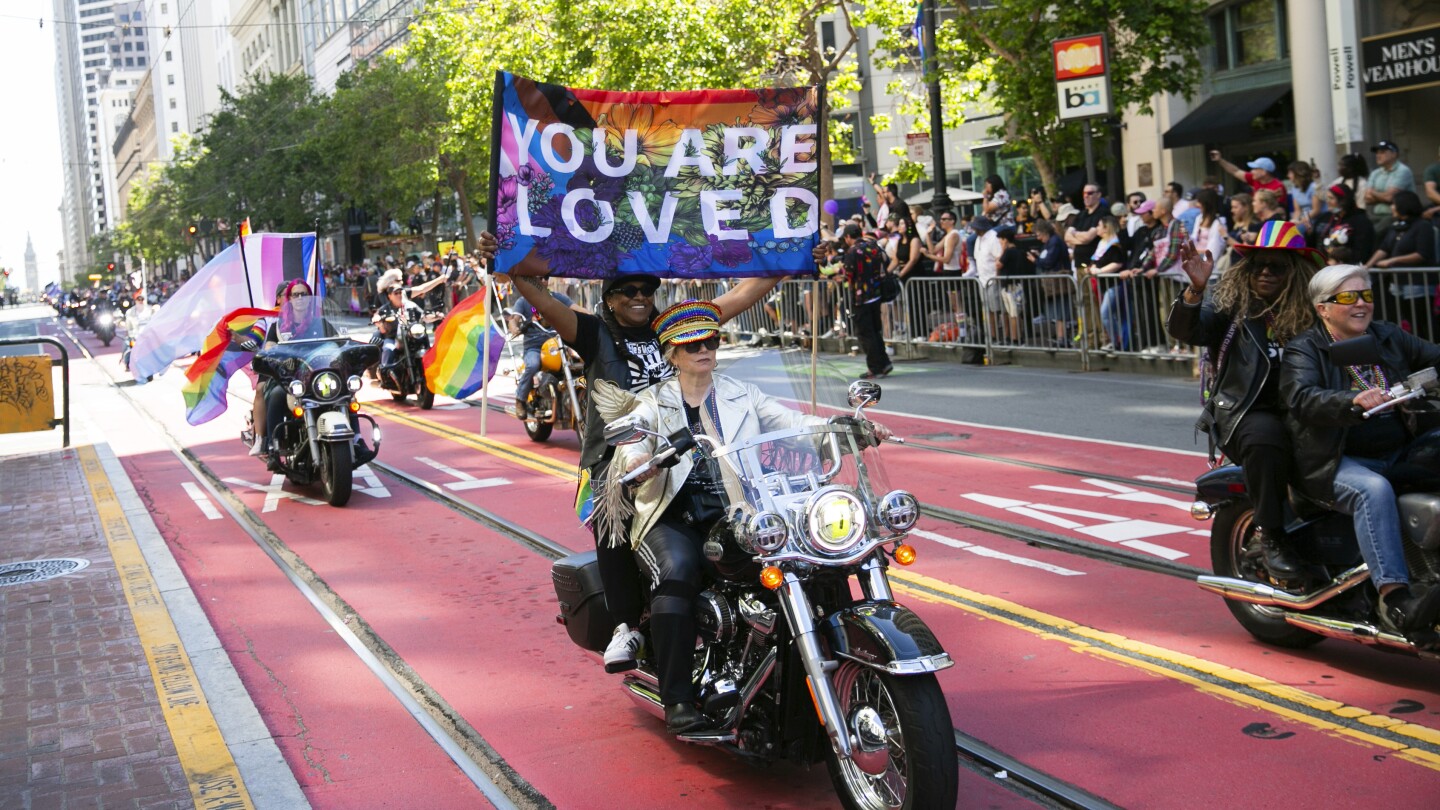More than two decades ago, when gay men and lesbians were prohibited from serving openly in the U.S. military and no state had legalized same-sex marriages, a national LGBTQ+ rights group decided to promote change by grading corporations on their workplace policies.
The Human Rights Campaign initially focused its report card, named the Corporate Equality Index, on ensuring that gay, lesbian, bisexual, transgender and queer employees did not face discrimination in hiring and on the job. Just 13 companies received a perfect score in 2002. By last year, 545 businesses did even though the requirements have expanded.
But the scorecard itself has come under attack in recent months by conservative activists who targeted businesses as part of a broader pushback against diversity initiatives. Ford, Harley- Davidson and Lowe’s are among the companies that announced they would no longer participate in the Corporate Equality Index.



Can I ask a sensitive question? This question is for LGBTQ+ people who actually work or worked at a company when it adopted or dropped participating in the program. Does the CEI actually have an effect on the company’s workplace tolerance or it is just something they do for appearances? Has a company that decided to drop participating become more intolerant or did they maintain the practices, but maybe considered the program itself an unnecessary expense?
Edit: One more question. If you’re a LGBTQ+ person who works or worked at a company with a good score. Did/does your experience match company’s score?
Worked at a major company you would instantly know the name of.
They were a large corporation but were not public ally traded. Trillions of dollars in assets with more than 60k people employed.
DEI was a MAJOR push, with not just required corporate training but also sessions held often for minority groups of all types to speak their minds in forums about how to connect with them etc.
DEI initiatives and campaigns were a thing, VP of DEI was hired and they had a whole subsection under HR. Corporate events, entertainment, whole virtual bands playing to the theme of inclusion.
This same company did nothing when facing the burning obvious culture of being yes men to their bosses. They did nothing different than most any other massive rich company for how they treated workers, tracking their activity, location, and even physical assess login to buildings for reviews or as excuse to fire.
In an large address by a major leader in the organization I personally gave virtual written innocuous feedback, that they asked for, only to have that be met within minutes with being told never to do that again. The message wasn’t even seen by the speaker. It was just purely culturally unacceptable to offer any constructive criticism of any kind to people in high enough authority.
More than half a dozen people messaged me to tell me they appreciated I gave it public ally and it needed saying. I didn’t know any of them.
So if people are so important and we value voices being heard equally so much, why would you have people desperate to be treated like people and any such statement be met with greats of reprisal?
Yeah. DEI is fan fare in the same way the office cafeteria and gym were. They are designed to entice talent to come or stay while costing the company minimal amounts to do so.
I work gov side and was in the military. It helped in both places if it was supported by the bosses. Gay jokes stopped in my unit when someone got an instant public talking to when he used the gay f word as a term for the enemy team during an exercise. It made people realize that being ok with gay jokes bread a hostile workplace.
Same reason the military implemented the same training to curb rape and violence against women. If you cultivate an environment that stomps out the small/passive hate, it will show the people that commit hateful acts that they are not welcome.
Now that I work on the civilian side it helps so that the work we do is not hampered by a white male only experience. Others are not afraid to speak up on how decisions, settings, or tech effects people differently.